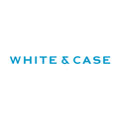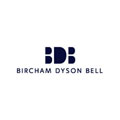As professionals, we aspire to achieve not only increased financial rewards, but also to have our years of hard work and dedication professionally recognised. Just one thing stands in our way – the interview. Promotion eludes many talented individuals, so if you want to get to the top, you need to have a clear strategy.
We have put together 8 short tips that are sure to make you stand out from the crowd and set you on your path to promotion:
- Sell, sell, sell. You MUST sell yourself. No one else is going to do that for you. Many people fail to fully understand that their interview is their chance to pitch themselves to the selection committee as someone who is ready to take on the added responsibility that comes with the role. The best way to approach this is to think of your selection panel as a client. Influence them in a conversational style that gets them on your side and establishes rapport.
- Stand out. Consider examples from your career thus far that differentiate you from your colleagues. It could be technical ability, or it may be that you can show examples of published work that single you out as an authority on a particular subject. Others make a particular effort to assist in the development of some kind of new, innovative service that the company offers – a marketing blog, for example.
- Information overload. This is not the time to overload people with masses of academic, technical knowledge. This is a selection process not an exam.
- Business sense. Remember that you work for a business, not an academic institution. You must prove skills in business development and show evidence of being able to bring business to the company.
- Leadership. You need to demonstrate that you can lead. You must convey to the selection panel that you are aware of the wider responsibilities you will inherit.
- Political ability. Be realistic: personality factors hugely when it comes to judging eligibility for promotion. Consider how well known you are outside your department, and how well liked you are within it. Have you clearly demonstrated your commitment to the company?
- Power Point-less. If your interview involves a presentation, it is best to remember that the aim of the presentation is to command the undivided attention of the selection panel. It is therefore probably best to leave the computer and slides at home. PowerPoint has its place, but in this instance you really do need to be the star. All the screen really does is place the focus onto a series of slides.
- Short is sweet. Many people underestimate the level of preparation that should go into interviews. We would recommend devoting the same amount of time to preparing as you would spend getting ready for a key meeting with a client. Once you’re in there, keep answers short, especially on the topics you are unsure of. And don’t learn your answers by heart; they will sound much better if delivered in a spontaneous manner on the day.
Finally, rehearsing questions, presentations (if you’re required to make one) with friends or family will ease nerves, familiarise you with the topics that might come up and help you to get the tone right. That tone should be professional, yet also engaging and as relaxed as you can manage. The more comfortable you are with the material, the more natural you will be. The more natural you are, the more likely your interviewer is to get an accurate picture of what you have to offer.
Take a look at our promotion article published in Accountancy Age.
















